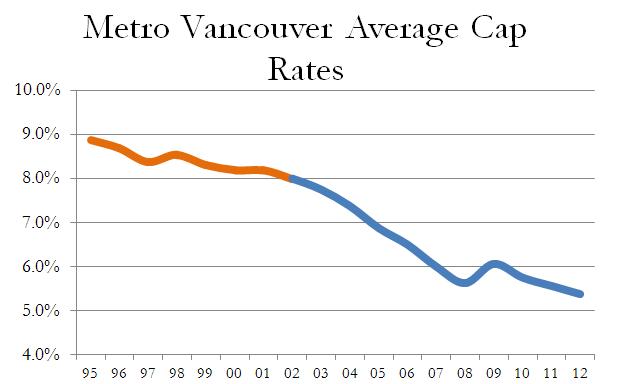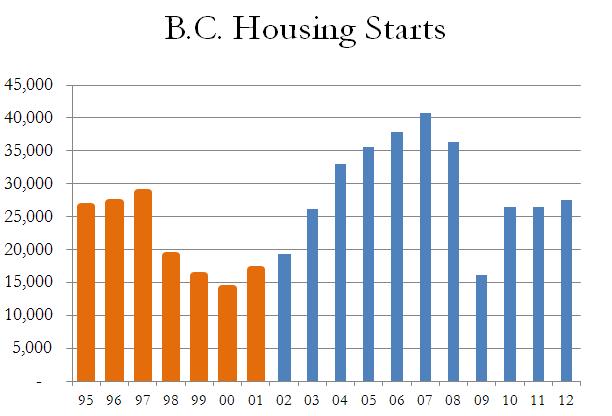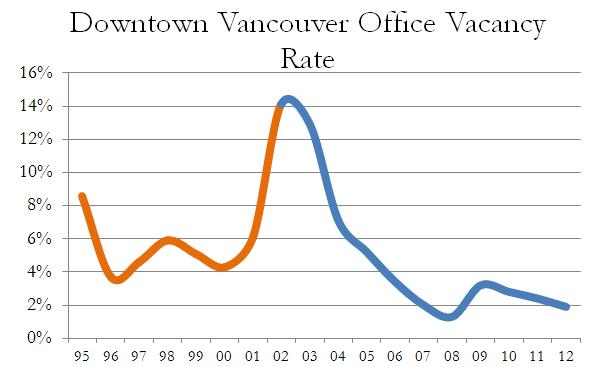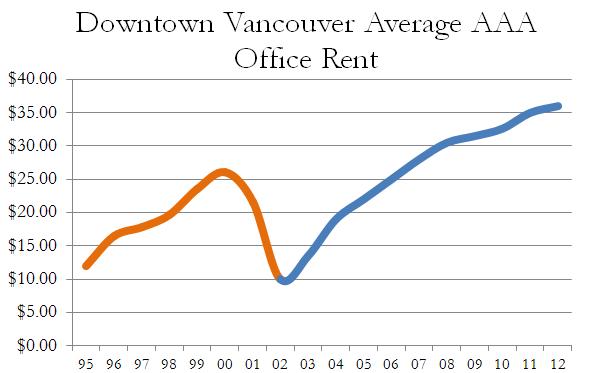Does a Change in Government Matter?
Of course for most involved in the Vancouver commercial real estate industry since the NDP were last in power, the answer is a resounding “yes!”, but what will the real impact be on the market in Vancouver if there is a change in government and Adrian Dix and the B.C. NDP are elected on May 14, 2013? To answer that question one needs look back to the 90’s…
Firstly, for those who don’t follow provincial politics, there is an election less than 90 days away. The governing Liberal party, led by Christy Clark, has been in power since 2001, and most polls conducted since the HST fiasco of 2011, have shown support for the Liberals below 30%. The latest polls show the NDP lead hovering around 15%, a lead that is generally viewed as insurmountable by political experts, and much of the commentary has already moved on to discuss how Adrian Dix will implement policy change.
 Source: BC Election 2013 Blog
Source: BC Election 2013 Blog
An informal poll of real estate industry experts yields similar commentary about the ‘doom and gloom’ of the Glen Clark led NDP of the 90’s, a period in which B.C. became a ‘have-not’ province and more people were leaving B.C. than coming. Since 2001 when the Liberals took power, Vancouver has gone on an incredible run.
While much of the influence has been due to external forces outside the province, a look at some market indicators yields some interesting observations and shows the contrast between each party’s stay in power. Each chart has been divided to show the two parties’ terms in power (since 1995), as follows:
Capitalization rates take into account many more external factors (federal interest rates, for example), and have shown compression in other markets in Canada, but Vancouver has witnessed cap rates drop moreso than others amid continued strength in the local and provincial economy since the early 2000’s.
Housing Starts
Developers will appreciate this one. After a stagnant housing market in the late 90’s, construction in Vancouver (and B.C.) went on an unprecedented run between 2002 and 2008 shortly after Gordon Campbell was elected in 2001. Of course, the global downturn in 2008/2009 put the brakes on the market, but it has bounced back relatively well despite recent forecasts of a prolonged slowdown (perhaps due to lack of confidence and risk in the provincial outlook for 2014 and beyond?)
Office Vacancy Rates and Rents
Many will remember a period in the early 2000’s when new office construction wasn’t a topic of conversation in the local commercial real estate industry. In fact, confidence was so bad in 2002 with the vacancy rate hovering around 15% that Bentall decided to halt construction of Bentall 5, now one of Vancouver’s most valuable towers, at half of its height and wait for the office market to improve.
Of course, the office market has always been cyclical irrespective of the political climate. It is largely impacted by macroeconomic factors; however, a look at the Downtown Vancouver office market in terms of rents and vacancy from 1995 to 2013 shows some marked contrast between the NDP and Liberal’s reign on the province.
A Market Forecast Under Adrian Dix?
While we won’t go so far as to suggest that there will be any immediate negative impact as a result of an NDP government getting elected, there is obvious reason to be concerned about the economy moving forward, and not just because of the NDP’s awful track record when it comes to the economy. The most immediate impact could be increased vacancy among Vancouver’s retail, office and industrial buildings, with a prolonged period of flat rents to follow. If the NDP’s policies follow their traditional model, the economic picture could become cloudy and an attendant decline in such metrics as population, employment, housing starts and retail sales will all negatively impact every facet of Vancouver investment and development activity.
And that could just be Dix’s first term….





